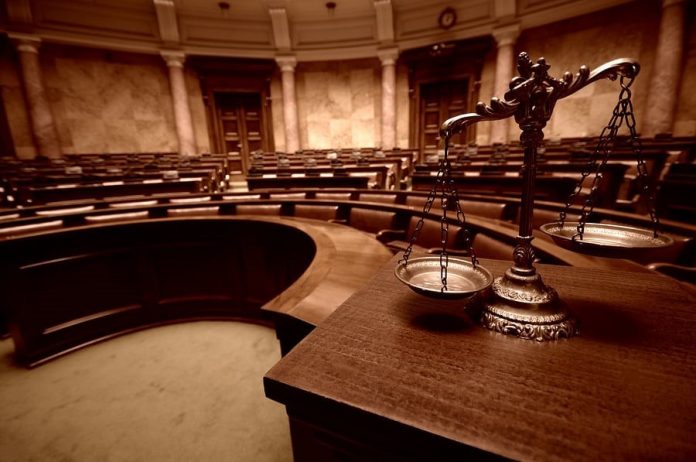Biocon Ltd. & Ors v. F. Hoffman-La Roche Ag & Ors (Case No. 68 of 2016, CCI)
INTRODUCTION
This is a landmark case which was decided by the Competition Commission of India on the point of abuse of dominant position and anti-competitive practices.
In this case Biocon Ltd and Mylan Pharmaceuticals Pvt Ltd (informants) had filed a complaint against Hoffman-La Roche Ag, Genentech Inc and Roche Products (India) Pvt Ltd under section 19 (1) (a) of the Competition Act, 2002.
Sec 19 (1)(a) of the Act contemplates that the competition commission can inquire into any allegations of infringement of any provision in sec 3 (1) or sec 4 (1) of the Act.
Such an inquiry can be done by it either Suo Motu or on a complaint filed by any person/consumer or their association/trade association. The commission can also inquire if a reference is made to it by the central or state government or a statutory authority.
FACTS OF THE CASE
The Roche Group was a pharmaceutical company which was engaged in manufacturing drugs used for cancer treatment. They had introduced their drugs and had a 100% market share. When the informants tried to introduce their cheaper versions of biosimilar drugs, they were denied market access in contravention of sec 4(2)(c) of the Act.
Aggrieved by the anti competitive practices of the Roche Group the informants filed a complaint before the Competition Commission of India.
Issues for Determination
Informants Plea
- It was alleged by the informants that Roche Group was a dominant player in the Trastuzumab market and was indulging in practices that were abusive as per the Act to evade the entry of the Informants’ products and also to hamper their growth in the respective market. Such a conduct of Roche Group was alleged to be in violation of the provisions of sec 4 of the Act.
- It was further alleged that Roche Group, having a dominant position used tactics to hinder the entry and growth of biosimilar Trastuzumab in the Indian market thereby affecting the competition.
- The Roche group made representations to the DCGI against approvals for the informant’s drugs stating that the necessary trials had not been conducted. However, the informant was granted the approval to manufacture Trastuzumab Bulk and Trastuzumab Injection.
- It was also alleged that Roche group filed a civil suit against the informants claiming that the informants were misrepresenting their drugs and therefore an injuction was sought to restrain the informants from selling their version of drugs. The Delhi H.C. passed an order granting an interim injunction however the informants were subsequently allowed by a subsequent order of the H.C.
- It was further alleged that Roche Group used the earlier orders of the H.C. for misleading the authorities by showing the earlier order of the H.C. and concealing the subsequent developments. They also mislead the doctors and hospitals and tried to stop the entry of biosimilars in the market. The doctors were also asked not to prescribe the drugs of the informants.
- Thus the informants prayed to the Commission to direct the Director General to carry out an investigation in terms of sec 26 (1) of the Act for alleged anti-competitive practices and abusive conduct adopted by the Roche Group.
The defendant’s Plea-
- The defendants refuted all allegations of the informants.
- A strong argument was launched on the maintainability of the complaint on the ground that the issues raised were already pending adjudication before the Delhi H.C.
- It was also stated that since development of drug involves heavy investments, time and approvals; it was imperative upon the innovator to see that biosimilars do not cause a spot on the research of the innovator.
- It was also argued that if biosimilars were allowed to use the reference biological drug’s name and data, then it would amount to compromising the patient’s safety and also cut down the incentive of the originator.
JUDGMENT-
- On the point of dominant position it was observed that Roche Group introduced their drugs in the year 2002 and later reintroduced their cheaper drugs in the year 2012. Till February 2014 there was no other player in the market thus it had a 100% share in the relevant market.
- In February 2014, when the informants introduced their version of biosimilar drugs the market share of Roche Group fell but even then keeping in mind the market share, size and resources of Roche Group, it can be said that Roche Group is dominant in the relevant market.
- On the point of creating an entry barrier to the informants by indulging into vexatious litigation it was held that recourse to legal proceedings was a right of the party and the same cannot hold ground to be motivated by evil intentions.
- With regard to influencing authorities by using the order of the HC in their favour and concealing the subsequent directions of the High Court, it was held that Roche Group indulged in activities which were aimed at adversely affecting the penetration of biosimilars in the market.
- The commission observed that the Act places special responsibility on the dominant enterprise to not conduct its business in contravention of sec 4(2) of the Act and Roche Group had indulged in abusive conduct.
- With regard to unfair pricing under Sec 4(2)(a)(ii) it was held that since the innovator invests huge sums on research, the initial high price would not attract the provision of unfair pricing.
- Therefore the commission held that contravention of sec 4(2)(c) of the Act was made out against the Roche Group and thus the DG was directed to carry out an investigation in terms of sec 26(1) of the Act.





